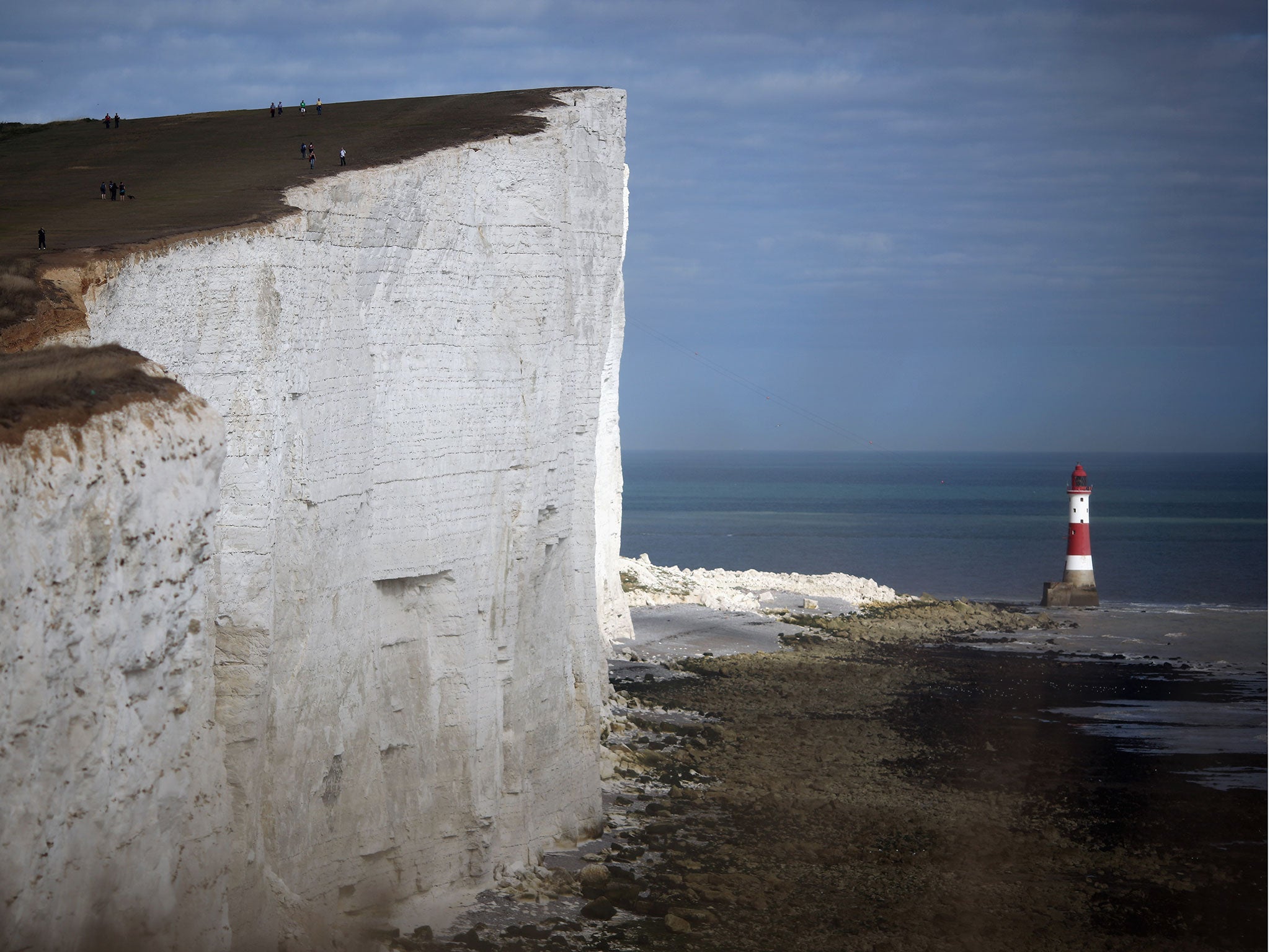Iconic white cliffs of southern England eroding '10 times faster' than over last few thousand years
'The UK cannot leave the issue of cliff erosion unresolved in the face of a warming world and rising sea level'

The picture-postcard cliffs of England’s southern coastline are eroding 10 times faster than they did over the past few thousand years, according to a new study.
Researchers found the chalky shores at Beachy Head and Seaford Head in East Sussex had retreated between 22cm and 32cm, respectively, annually over the past 150 years. But the erosion rate averaged at only around 2cm to 6cm a year over the past 7,000 years, according to the study.
Dr Martin Hurst, of the University of Glasgow, said climate change, which is bringing bigger waves and rising sea levels, was making erosion worse.
“We were very surprised at the stark difference,” said Dr Hurst, who led the research published in the Proceedings of the National Academy of Sciences. “If you have a nice thick and wide beach in front of a cliff, that reflects wave energy. But the beaches have all but disappeared.”
Coastlines in the south are typically managed by using groynes or by shifting sand and gravel. But Beachy Head and other erosion hotspots in East Sussex have suffered from protection being given to areas further west.
“We need to be aware that when we manage the beach in one place, there is a knock-on effect somewhere else,” Dr Hurst told The Guardian.
Sea levels will rise by more than a metre over the next century, according to Massachusetts University research.
Dr Hurst added: “We are concerned that increasing sea level rise and more storms will drive more erosion.”
Dr Dylan Rood, from Imperial College London, one of the co-authors of the research, told the BBC: "The coast is clearly eroding, and Britain has retreated fast. A nearly tenfold increase in retreat rates over a very short timescale, in geological terms, is remarkable.
"The UK cannot leave the issue of cliff erosion unresolved in the face of a warming world and rising sea levels. Cliff erosion is irreversible. Once the cliffs retreat, they are gone for good."
Subscribe to Independent Premium to bookmark this article
Want to bookmark your favourite articles and stories to read or reference later? Start your Independent Premium subscription today.

Join our commenting forum
Join thought-provoking conversations, follow other Independent readers and see their replies